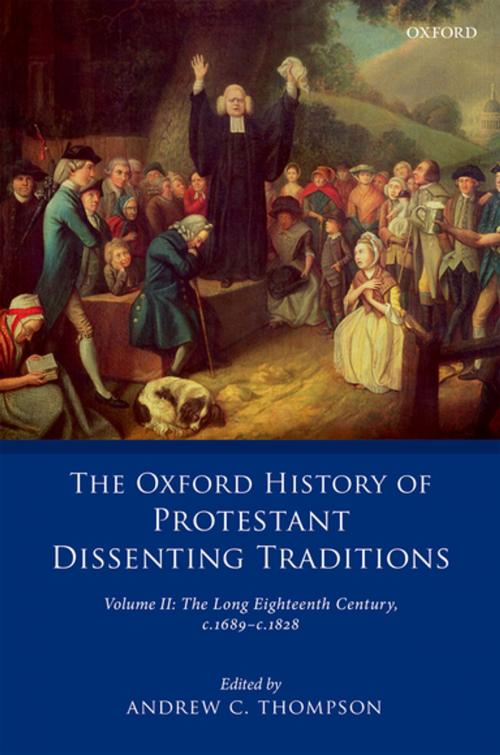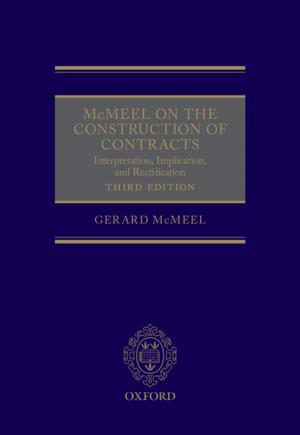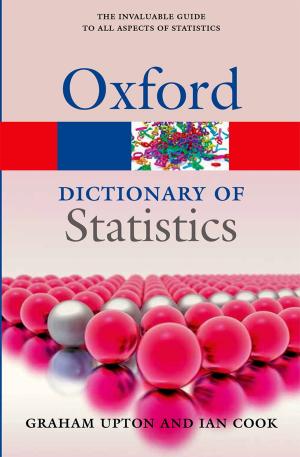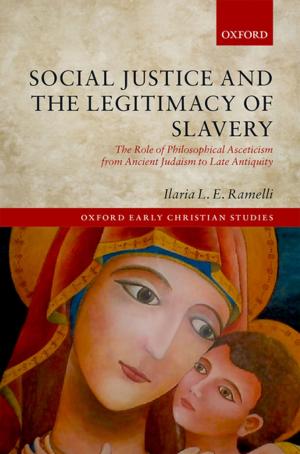The Oxford History of Protestant Dissenting Traditions, Volume II
The Long Eighteenth Century c. 1689-c. 1828
Nonfiction, Religion & Spirituality, Christianity, Church, History| Author: | ISBN: | 9780192518200 | |
| Publisher: | OUP Oxford | Publication: | May 31, 2018 |
| Imprint: | OUP Oxford | Language: | English |
| Author: | |
| ISBN: | 9780192518200 |
| Publisher: | OUP Oxford |
| Publication: | May 31, 2018 |
| Imprint: | OUP Oxford |
| Language: | English |
The five-volume Oxford History of Dissenting Protestant Traditions series is governed by a motif of migration ('out-of-England'). It first traces organized church traditions that arose in England as Dissenters distanced themselves from a state church defined by diocesan episcopacy, the Book of Common Prayer, the Thirty-Nine Articles, and royal supremacy, but then follows those traditions as they spread beyond England -and also traces newer traditions that emerged downstream in other parts of the world from earlier forms of Dissent. Secondly, it does the same for the doctrines, church practices, stances toward state and society, attitudes toward Scripture, and characteristic patterns of organization that also originated in earlier English Dissent, but that have often defined a trajectory of influence independent ecclesiastical organizations. The Oxford History of Protestant Dissenting Traditions, Volume II charts the development of protestant Dissent between the passing of the Toleration Act (1689) and the repealing of the Test and Corporation Acts (1828). The long eighteenth century was a period in which Dissenters slowly moved from a position of being a persecuted minority to achieving a degree of acceptance and, eventually, full political rights. The first part of the volume considers the history of various dissenting traditions inside England. There are separate chapters devoted to Presbyterians, Congregationalists, Baptists and Quakers—the denominations that traced their history before this period—and also to Methodists, who emerged as one of the denominations of 'New Dissent' during the eighteenth century. The second part explores that ways in which these traditions developed outside England. It considers the complexities of being a Dissenter in Wales and Ireland, where the state church was Episcopalian, as well as in Scotland, where it was Presbyterian. It also looks at the development of Dissent across the Atlantic, where the relationship between church and state was rather looser. Part three is devoted to revivalist movements and their impact, with a particular emphasis on the importance of missionary societies for spreading protestant Christianity from the late eighteenth century onwards. The fourth part looks at Dissenters' relationship to the British state and their involvement in the campaigns to abolish the slave trade. The final part discusses how Dissenters lived: the theology they developed and their attitudes towards scripture; the importance of both sermons and singing; their involvement in education and print culture and the ways in which they expressed their faith materially through their buildings.
The five-volume Oxford History of Dissenting Protestant Traditions series is governed by a motif of migration ('out-of-England'). It first traces organized church traditions that arose in England as Dissenters distanced themselves from a state church defined by diocesan episcopacy, the Book of Common Prayer, the Thirty-Nine Articles, and royal supremacy, but then follows those traditions as they spread beyond England -and also traces newer traditions that emerged downstream in other parts of the world from earlier forms of Dissent. Secondly, it does the same for the doctrines, church practices, stances toward state and society, attitudes toward Scripture, and characteristic patterns of organization that also originated in earlier English Dissent, but that have often defined a trajectory of influence independent ecclesiastical organizations. The Oxford History of Protestant Dissenting Traditions, Volume II charts the development of protestant Dissent between the passing of the Toleration Act (1689) and the repealing of the Test and Corporation Acts (1828). The long eighteenth century was a period in which Dissenters slowly moved from a position of being a persecuted minority to achieving a degree of acceptance and, eventually, full political rights. The first part of the volume considers the history of various dissenting traditions inside England. There are separate chapters devoted to Presbyterians, Congregationalists, Baptists and Quakers—the denominations that traced their history before this period—and also to Methodists, who emerged as one of the denominations of 'New Dissent' during the eighteenth century. The second part explores that ways in which these traditions developed outside England. It considers the complexities of being a Dissenter in Wales and Ireland, where the state church was Episcopalian, as well as in Scotland, where it was Presbyterian. It also looks at the development of Dissent across the Atlantic, where the relationship between church and state was rather looser. Part three is devoted to revivalist movements and their impact, with a particular emphasis on the importance of missionary societies for spreading protestant Christianity from the late eighteenth century onwards. The fourth part looks at Dissenters' relationship to the British state and their involvement in the campaigns to abolish the slave trade. The final part discusses how Dissenters lived: the theology they developed and their attitudes towards scripture; the importance of both sermons and singing; their involvement in education and print culture and the ways in which they expressed their faith materially through their buildings.















